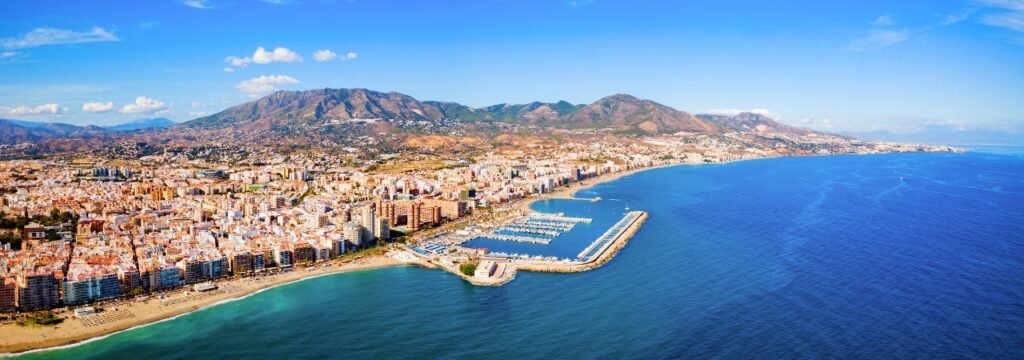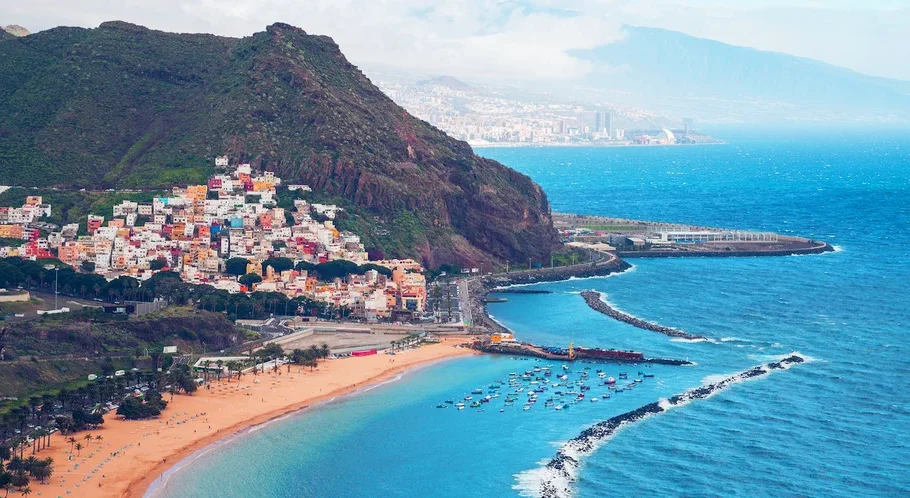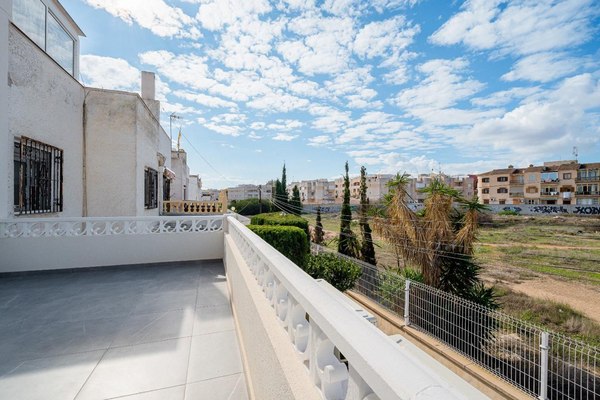How to get a residence permit in Spain

Spain attracts Ukrainian citizens with its climate and opportunities. Buying an apartment or house in this country is a wonderful investment, but it does not grant the right to permanent residence, work, or study. To legally stay in Spain for longer than the law-established 90-day visa period, it is necessary to obtain a residence permit (residence visa). In this article, we will look at how to obtain a residence permit in Spain and what steps need to be taken for this.
What is a Residence Permit in Spain
To move to Spain for permanent residence, you must first obtain a national long-term visa at the consular section of the Spanish embassy or at official visa centers in Kyiv. Today, there are legal firms that work online and will take all the paperwork for this on themselves.
After entering Spain with a national long-term visa, to obtain a residence permit, you must submit documents to the local immigration office or police. This procedure must be completed within 30 days of arrival in the country. If you have purchased real estate through our agency, our lawyers will guide you and help you with obtaining a residence permit in Spain.
A residence permit in Spain is a legal status that allows a foreign citizen without a Spanish passport to stay in the country for more than 90 days. The document that confirms this status is the resident card (TIE) — a plastic card with a photograph, where personal details and the identification number are indicated.
A residence permit in Spain is not equivalent to citizenship but provides the following advantages:
- the legal right to stay in Spain for more than 90 days;
- free movement across Schengen Area countries;
- access to healthcare and education systems;
- the ability to work or run a business;
- the right to open accounts in European banks.
The initial temporary residence permit is usually issued for 1 or 2 years with the possibility of extension.
To obtain a residence permit in Spain, you do not have to live in the country permanently, but to obtain permanent residence, you must live in the country for 5 years on temporary residence status. Spanish citizenship can be applied for after 10 years of legal and continuous residence in the Kingdom. This period includes both temporary and permanent residence status. The time required to obtain citizenship may be shortened to 1 year for those born in Spain, married to a Spanish citizen, or widows/widowers of a Spanish citizen, as well as to 2 years for citizens of Portugal, Andorra, the Philippines, Equatorial Guinea, and Latin American countries.
Spanish legislation provides several pathways for immigration and legalization. A residence permit in Spain is granted to:
- investors who contribute to the economy and real estate of the country;
- financially independent persons with sufficient passive income outside of Spain, who do not plan to work in the country;
- legally working freelancers;
- students;
- employees with official employment contracts in Spanish companies;
- entrepreneurs opening their own business project that is beneficial to the Spanish economy;
- family members of Spanish citizens or residents;
- individuals in exceptional circumstances, such as long-term residency without documents (on grounds of settlement).
You can independently obtain a residence permit in Spain from the age of 18, but for students, this condition is not mandatory. Children can obtain Spanish residence if one of the parents already has resident status or is a citizen of the country, or if they are born in Spain under certain conditions.
Grounds for Obtaining a Residence Permit
The grounds for obtaining a residence permit in Spain are specific conditions that allow the applicant to legally reside in the country. The residence permit program depends on the applicant’s financial status, the purpose of the residence, and the type of activity.
“Golden Visa” (Residencia por inversión)
Previously, residence permits were granted to foreign citizens who invested in the Spanish economy — purchased real estate in Spain worth at least 500,000 euros, invested 1 million euros in Spanish companies, or deposited 1 million euros in a bank account. From April 3, 2025, Spain officially ended the “Golden Visa” program. However, applications submitted before this date will be considered under the old rules.
Non-Work Residence Visa (Non-Lucrative Visa)
The grounds for obtaining this document are having a stable passive income outside of Spain, which allows the applicant to live in the country without working. To do this, financial solvency must be confirmed by providing bank statements. To obtain a non-lucrative residence permit in Spain, the applicant must have a certain amount of money in their bank account — the primary applicant’s income should be at least 28,000 euros per year, plus 7,200 euros per year for each family member.
Residence Permit for Freelancers (Digital Nomad Visa)
This program is designed for remote workers, including freelancers, who earn income from foreign clients or companies. The permit allows legal residence and work in Spain, while paying taxes to the Spanish government. The main conditions are proof of income, a work contract with a foreign employer, or a service contract outside of the Kingdom.
Student Visa (Visado de estudios)
This document grants the right to live in Spain during studies. To obtain this document, the applicant must be enrolled in a Spanish educational institution and confirm having sufficient funds for living during the year and throughout the entire study period. Students with this visa have the right to work up to 30 hours a week, and after completing their studies, this document is an advantage when switching to another type of residence permit. The conditions for obtaining a residence permit in Spain for students include the requirement to have more than 7,200 euros annually in their bank account.
Family Reunification Residence (Residencia por reagrupación familiar)
Immigration is possible if the relatives of a Spanish citizen or resident move to join them. However, certain conditions must be met, namely, the Spanish citizen/resident must have a stable income and housing sufficient for all family members.
Work Residence / Employment Contract (Residencia y trabajo por cuenta ajena)
A residence permit in Spain with the right to work is issued to foreign citizens who have received an official job offer from a Spanish employer, with confirmation that the salary level meets or exceeds the minimum requirement. The main condition for obtaining a work residence permit in Spain is that the company must provide evidence that it could not find a suitable specialist among European citizens.
Business Ownership (Residencia por cuenta propia)
Starting a business that will benefit the Spanish economy and create jobs is also grounds for obtaining a residence permit in Spain. The procedure for obtaining a residence permit in Spain based on business creation includes providing a business plan and confirming financial solvency. The conditions for obtaining a residence permit in Spain for this visa include proving the availability of funds for implementing the proposed business plan. The exact amount is not established and depends on the project.
Deadlines and Stages of Obtaining a Residence Permit
| Obtaining a Residence Permit in Spain | |
| Stage | Timeline |
| Gathering and preparing documents *** | 1-3 months (depends on the visa type and grounds) |
| Submitting the application | Usually 1-2 weeks (depending on appointment) |
| Reviewing the application | 1-3 months |
| Issuing a positive decision | Several days after review |
| Receiving the residence card | Up to 1 month after receiving the decision |
*** Attention! As mentioned at the beginning of the article, the time to submit an application for a residence permit after entering Spain is limited to 30 days. Therefore, the stage of gathering and preparing documents should be started in advance, while still in Ukraine.
How Much Does It Cost to Obtain a Residence Permit in Spain
The cost of obtaining a residence permit in Spain consists of several components: government fees, document expenses, health insurance, and, if necessary/wanted, payment for lawyer services. The total financial cost depends on the type of residence permit and the number of applicants.
Main expenses related to obtaining a residence permit in Spain:
- State fees.
The cost of the official residence permit and issuing the resident card (TIE) — these are mandatory payments regulated by the government. Their cost usually ranges from 10 to 40 €. - Medical insurance.
To obtain a residence permit in Spain, it is necessary to arrange annual health insurance without extra payments. On average, the cost is 450-600 € per year for one person, and it can increase depending on age (the older you are, the more expensive) and health condition. - Lawyer services.
Legal assistance in obtaining a residence permit can range from 500 to several thousand euros. The cost depends on the complexity of the procedure and the type of residence permit chosen. For example, services for obtaining a Golden Visa will be more expensive than assistance in obtaining a student visa and residence permit. - Additional expenses.
This category includes costs for document translation and apostille, consular fees for the visa, expenses for income verification, and other bureaucratic procedures necessary to obtain a residence permit.
Financial conditions for obtaining a residence permit in Spain vary widely, so it is important to calculate all possible expenses in advance.
Extending the Residence Permit and Transitioning to Permanent Residency
As a rule, the first residence permit is issued for 1 year, with subsequent renewals for 2 years. The application for renewal must be submitted 60 days before the TIE card expires and no later than 90 days after. In this case, it is necessary to confirm that the applicant has lived in Spain for at least 183 days per year, as well as provide documents of financial solvency, housing availability, and medical insurance.
The application for permanent residence is submitted after 5 years of legal and continuous residence in Spain with temporary residency. During this period, the total absence from the country must not exceed 10 months. Permanent resident status grants more rights and does not require renewal.
Conclusion
Obtaining a residence permit in Spain is a serious and multi-step process that requires careful preparation. There is no single answer to the question of how to obtain a residence permit in Spain, as it depends on the chosen grounds for relocation. However, with the right approach and strict adherence to all requirements, the dream of living in this country is entirely achievable.
Need help with document preparation and going through all the stages of obtaining a residence permit in Spain? Spanish Life company offers its services to make the process as simple and efficient as possible.
We will answer any question!


Online purchase
More details


